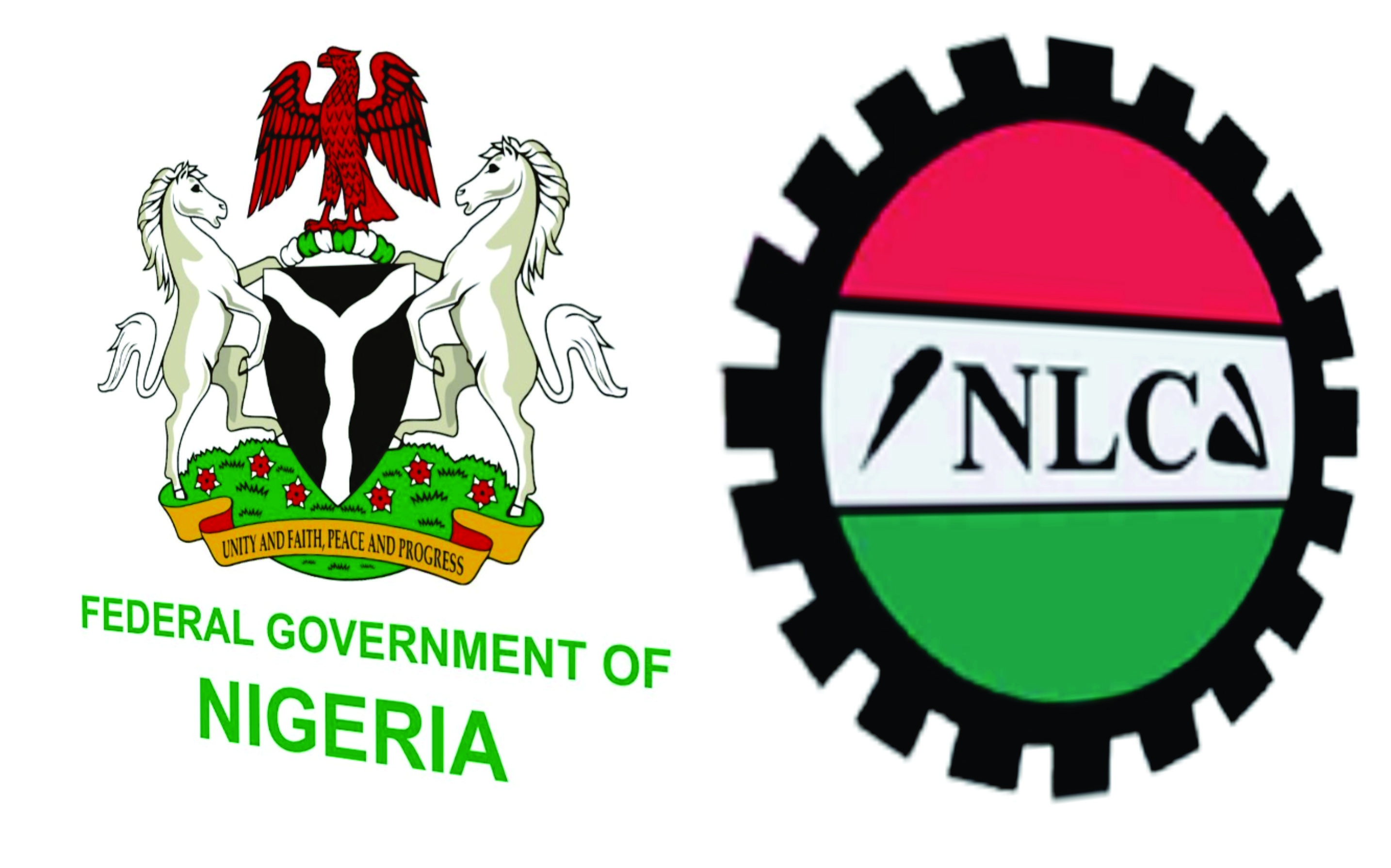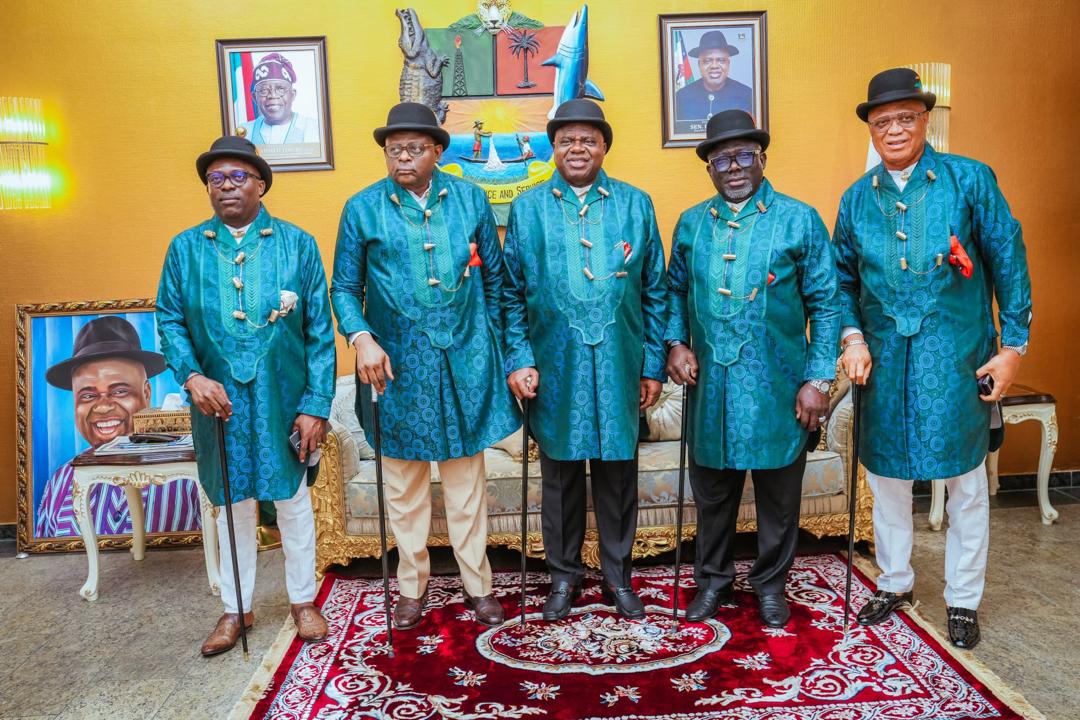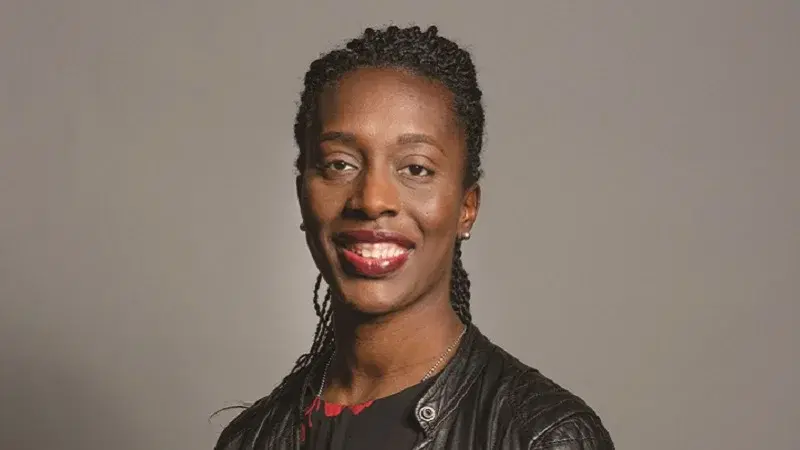News
Protest: You’re Not The Only Voice Of Nigerians, Tinubu Tells NLC …Says He ‘ll Fight Corruption To Ruin

President Bola Tinubu yesterday criticised the recent protest by the Nigeria Labour Congress (NLC), saying the labour movement is not the only voice of Nigerians.
The labour union, had on Tuesday, embarked on a street protest across the country over the level of hardship in the country following the removal of fuel subsidy by the Federal Government.
Recall that in his inaugural speech on May 29, 2023, Tinubu pronounced that “Fuel subsidy is gone,” a decision that has led to an increase in transportation among others in the country.
But speaking during the commissioning of the Lagos Red Line Train in Lagos yesterday, Tinubu stated that while the union has its rights and freedom, it is not the only voice of the Nigerian people.
“The labour union should understand that no matter how much we cling to our freedom and rights… to call for strike within nine months of an administration is unacceptable.
“If you want to participate in the electoral process, wait until 2027. If not, maintain peace; you are not the only voice of Nigerians.”
The President also said that there is no going back on the reforms made by his administration as it approaches its first year in office.
“I asked for this job, I cannot complain. These reforms that are ongoing, we are not looking back because it is all about the people,” he said.
He further stated, “We must be committed to great value, and we will grow the economy. We will feed ourselves out of penury, and we will be happy that we did it.
“I tell Nigerians from this podium that change is possible and that we must make progress. It’s not about a single individual but about the fastest-growing population in the world.
“Out of every black-coloured individual, one is a Nigerian. We cannot afford to relax; we must plan and prepare for the increasing population.
“But this revolution that has started, this reform that is ongoing, we are not looking back. The engineering, the construction, the affirmation of our pledge to be loyal to our country. There is one thing I know is that there is a very bright light at the end of the tunnel.”
He also stated that his administration is focused on the people, and ready to fight corruption and smuggling “to ruin” even though it will fight back.
“One thing I know is that there is a very bright light at the end of the tunnel.
“I agree smugglers will fight back, corruption will fight back… we will fight them to ruin.
“Corruption will go away. We will save the money for you; to educate our children; to pay for the healthcare system of our people; to pay for modern transportation system.
“The fight is on, we are not looking back. This economy, we will grow it; we will feed ourselves out of the penury and we will be happy that we did it.
“If it is corruption, we must exterminate it no matter how hard it is fighting back… no to corruption. We must adhere to our pledge. Nigeria will be out of economic problems”, he assured.
Tinubu stated that the commissioning of the red line marked the realization of a vision he had 25 years ago when he served as governor of the state.
He also called for increased collaboration between the Ministry of Transport and other states to develop railway infrastructure nationwide.
The Red Line Rail Project, inaugurated by President Tinubu, is an intra-state rail service aimed at improving transportation within the city and spans 37 kilometres.
News
Let’s Approach Regional Development Issues Differently – Fubara …As S’South Govs Host Fubara To 50th Birthday Celebration

Rivers State Governor, Sir Siminalayi Fubara, has sued for a change in the current approach adopted by South South Governors in their pursuit to achieve holistic regional development and economic prosperity.
The governor insisted on de-emphasis in vested individuals’ political interests while looking at the bigger picture of achieving enduring regional integration that will strengthen unity of purpose to change the trajectory of development in the region.
Fubara made the appeal during the meeting of Governors of South-South States, under the auspices of BRACED Commission, at the Bayelsa State Government House in Yanagoa on Tuesday.
This was contained in a statement by the Chief Press Secretary to the Governor, Nelson Chukwudi.
BRACED is an acronym for Bayelsa, Rivers, Akwa Ibom, Cross River, Edo and Delta.
He said: “I want to appeal that if we have to succeed in this drive, we need to keep our political differences aside and understand that the struggle, as at today, is for posterity, for the development of our region.
“It is really sad that in Niger Delta that is the economic base of this country, the construction of a road that you tagged ‘East-West Road’ could be an issue, that we need to beg, protest, and complain to get it fixed. I don’t think it is proper.”
Governor Fubara stated that it is not that the federal authorities do not understand that Niger Delta needs the road but quickly added that they have seen that even the people of the region do not take themselves seriously.
The governor said the moment Niger Delta people stopped playing to the gallery, and place value on themselves, outsiders will have no option than to accord the region and its people due regard.
Fubara said: “On my part, I want to say this: This is not the first time we are meeting. For me, I followed the course of the region meeting in a forum that we tagged “BRACED Commission.”
“BRACED Commission is also one of the bodies that was constituted at that time to support and work out development strategies for this region. But what I am seeing today is just limiting this meeting to only BRACED COMMISSION.
“We need to widen the scope where other leaders of the region should be part of the discussion of the development of the region, and I think this is the direction that will help the region.”
Reading the Communique of the meeting, the new Chairman of the Forum of Governors of South-South States, and Governor of Bayelsa State, Senator Douye Diri, said they support the Federal Government Tax Reform Bills, and urged President Bola Tinubu to extend the Value Added Tax (VAT) sharing percentages to oil and gas derivation.
He stated the Forum’s request to the Federal Government to urge relevant stakeholders and agencies to extend remediation of polluted environment ongoing in Ogoni land to other impacted communities and States in the region.
Governor Diri also said that the Forum resolved to establish a structural regional security network to enhance safety and security, foster stable Niger Delta region conducive for economic growth and prosperity.
Highlight of the event was the hosting of Governor Fubara to a surprise 50th Birthday celebration by the Governors of South-South States at the Government House in Yenagoa.
News
Fubara Lauds Tinubu For Setting Up Education Load Fund … Vows To Ensure Rivers Benefit Maximally From Scheme

The Rivers State Government has applauded President Ahmed Bola Tinubu for conceiving the idea of setting up the Nigeria Education Loan Fund (NELFUND) which has opened up opportunities for youths to acquire tertiary education irrespective of their financial status.
Rivers State Governor, Sir Siminalayi Fubara, gave the commendation while playing host to a delegation from NELFUND who came on an advocacy visit to the Government House in Port Harcourt on Tuesday.
Represented by his deputy, Prof. Ngozi Nma Odu, Governor Fubara said in developed countries it is common for people to go through school with loans which they sometimes pay all throughout their lives, noting that “for us, it is more accessible and more friendly because you would be required to pay back the loan two years after your National Youth Service.
“It is a win-win situation; it is a situation where the youths in Nigeria should not say because my parents are poor or passed away I cannot improve on my educational growth. This offers them a golden opportunity and I am glad you came for this advocacy.”
The governor urged NELFUND to intensify its advocacy to let the people know how they can benefit from it, adding that it is more important when talking about vocational institutions.
“If you look at the developed countries it is people that went to the vocational schools that make so much money, because it is pricey to get somebody to do anything, we need to instil this into our people, our youths, because people sometimes tend to look down on people that went to vocational schools, it should not be,” he said.
Fubara expressed delight with the NELFUND programme and assured that the State Government would do whatever it can to ensure Rivers State benefits maximally from the scheme.
In his remarks, the Managing Director and Chief Executive of NELFUND, Dr. Akintunde Sawyer, informed the governor that they were in Rivers State to seek the support of the State Government towards the loan, stressing that President Tinubu has directed them to ensure no Nigerian student who has the ability and desire to get educated at tertiary level is denied the opportunity due to lack of funding.
He explained that the scheme provides interest-free loans to students who apply, adding that these loans are not repayable until two years after their Youth Service when they must have gotten a job.
News
UK Appoints British-Nigerian As Trade Envoy To Nigeria

A British-Nigerian politician, Florence Eshalomi, has been appointed as the United Kingdom’s trade envoy to Nigeria.
Her appointment makes Eshalomi the second Nigerian to hold the position.
Confirming her appointment on X on Tuesday, she wrote: “It is an honour to have been appointed as the United Kingdom’s Trade Envoy to Nigeria.
“I’m looking forward to building on my close ties with Nigeria to promote a strong and flourishing economic relationship between our two great nations.
“I am looking forward to strengthening the UK’s relationship with Nigeria to explore shared growth and opportunities for both countries.”
Announcing the appointment in a statement on Tuesday, Jonathan Reynolds, the UK’s Business and Trade Secretary, said the decision was aimed at attracting investment into the UK and boosting economic growth.
“I’ve launched a new team of trade envoys who will use their experience, expertise, and knowledge to unlock new markets around the world for British businesses, attract investment into the UK, and ultimately drive economic growth,” Reynolds said.
Eshalomi, 44, is an MP representing the Vauxhall and Camberwell Green constituency.
She holds a Bachelor of Arts (Hons) in Political and International Studies with Law from Middlesex University.

